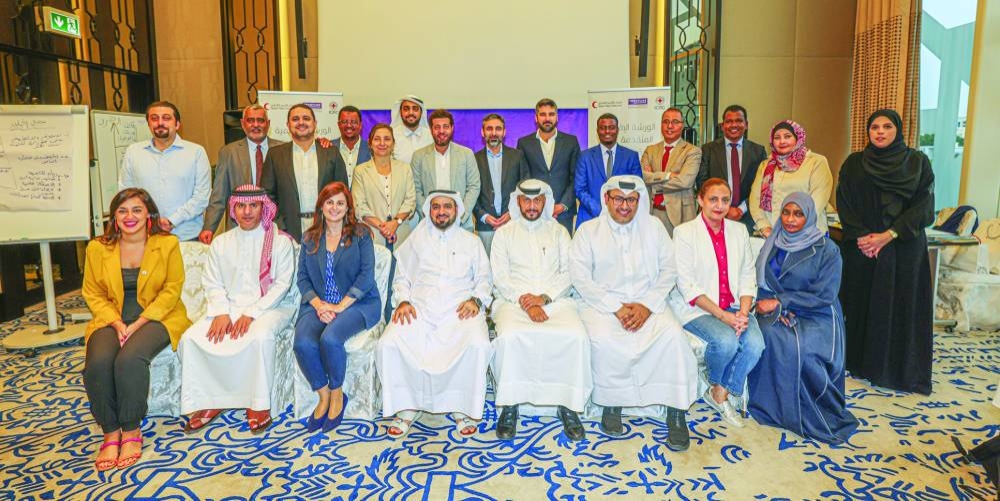The Qatar Red Crescent Society (QRCS) has concluded the four-day advanced regional workshop on 'Frontline Humanitarian Negotiation Management'.
Jointly held by the QRCS, the International Committee of the Red Cross (ICRC), and the Geneva-based Centre of Competence on Humanitarian Negotiation, the event was aimed at building the negotiation capacity among Qatar and GCC personnel during field relief and development operations.
Many important topics and drills were introduced, including safer access, key components of negotiation, the Naivasha Grid, classification of negotiations, design of mandate, identification of red lines, organisational vs negotiator mandate, risk anticipation, settlement in a humanitarian context, high-quality listening to understand the other party’s perspective and identify their motivations, negotiation and influence tactics, persuasive negotiation counterargument, sharing knowledge, negotiation models and adaptability, and factors to build trust and maintain negotiation with the other party.
The last day of the workshop focused on misinformation and disinformation, as a major challenge to humanitarian organisations and personnel.
The participants learnt about how to detect, analyse, and respond to false information, as well as effective mechanisms and strategies to deal with it.
There were presentations and insights given by media experts, including QRCS communication and public relations director Mohamed Rashid al-Marri and RCRC misinformation and disinformation adviser Paco Pangalangan.
A lecture was presented by Dr Turki bin Abdullah al-Mahmoud, director of Human Rights Department at the Ministry of Foreign Affairs and vice-chairman of the National Committee for International Humanitarian Law.

The QRCS held a four-day workshop.
